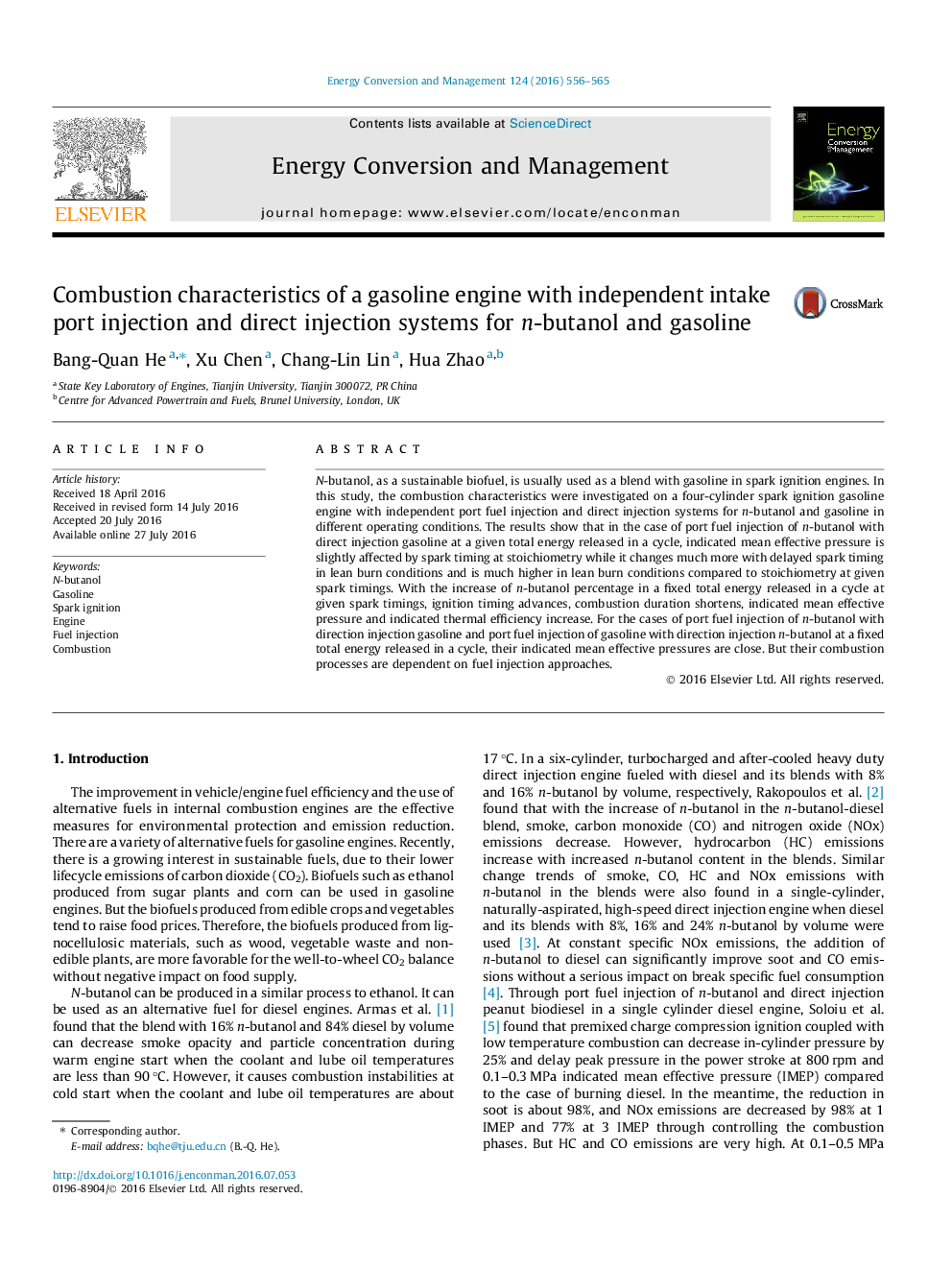| Article ID | Journal | Published Year | Pages | File Type |
|---|---|---|---|---|
| 765003 | Energy Conversion and Management | 2016 | 10 Pages |
•Different injection approaches for n-butanol and gasoline affect combustion events.•High n-butanol percentage in the total energy of fuels improves combustion stability.•N-butanol promotes ignition and shortens combustion duration.•Lean burn increases indicated mean effective pressure at fixed total energy of fuels.•Different fuel injection methods slightly affect indicated mean effective pressure.
N-butanol, as a sustainable biofuel, is usually used as a blend with gasoline in spark ignition engines. In this study, the combustion characteristics were investigated on a four-cylinder spark ignition gasoline engine with independent port fuel injection and direct injection systems for n-butanol and gasoline in different operating conditions. The results show that in the case of port fuel injection of n-butanol with direct injection gasoline at a given total energy released in a cycle, indicated mean effective pressure is slightly affected by spark timing at stoichiometry while it changes much more with delayed spark timing in lean burn conditions and is much higher in lean burn conditions compared to stoichiometry at given spark timings. With the increase of n-butanol percentage in a fixed total energy released in a cycle at given spark timings, ignition timing advances, combustion duration shortens, indicated mean effective pressure and indicated thermal efficiency increase. For the cases of port fuel injection of n-butanol with direction injection gasoline and port fuel injection of gasoline with direction injection n-butanol at a fixed total energy released in a cycle, their indicated mean effective pressures are close. But their combustion processes are dependent on fuel injection approaches.
